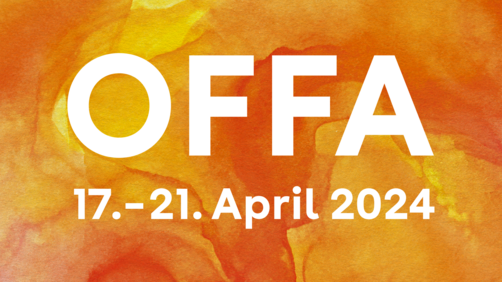Events - 29.05.2017 - 00:00
Václav Havel Exhibition: Politics and conscience
An exhibition focused on the life and times of Václav Havel is currently on display in the Main Building on the University of St. Gallen (HSG) campus

30 May 2017. An exhibition focused on Czech politician, intellectual and writer Havel opened this week at the HSG. Havel had a special connection with St. Gallen as he received an honorary doctoral degree in political science from the University in 1990. Eastern European Specialist Dr. Ulrich Schmid noted that, “Havel represents the rare case of a poet who became president of his country. He did not hesitate to go to jail for his high moral standards. HSG is proud to count him among its honorary doctors.”
As the Iron Curtain and Soviet Empire started to collapse Havel, who fought for change as a political dissident in the former Czechoslovakia during Communist rule, was elected president. He then helped lead the country in its transition into becoming a democratic country and served as the first President of the Czech Republic (1993–2003) after the Czech–Slovak split.
Finding his voice
For political reasons, as a young man Havel was not allowed into any post-secondary school with a humanities programs. After finishing his military service from 1957–59, Havel found work in Prague's theatre world as a stagehand. After some time, his own work would be featured on stage. In 1963, his first play The Garden Party was a success. He followed up his acclaim with several other works and was well known in Czechoslovakia and abroad.
Prague Spring
In the spring of 1968, recently elected President Dubček attempted to grant additional rights to his citizens. His efforts were squashed and Soviet troops took control of the country. During this time, Havel assisted the resistance by providing a radio narrative urging people to fight back. Following these events, he was banned from the theatre.
His political activities had consequences. His daily life was constantly under surveillance and his dissidence resulted in multiple stays in prison. His longest stay in prison, from May 1979 to February 1983 saw Havel almost succumb to phemonia. In describing his role as a dissident, Havel wrote in 1979, "we never decided to become dissidents. We have been transformed into them, without quite knowing how; sometimes we have ended up in prison without precisely knowing how. We simply went ahead and did certain things that we felt we ought to do, and that seemed to us decent to do, nothing more nor less."
Havel with his pen and his voice became a defacto leader and voice of political dissent from 1968 until the Velvet Revolution in 1989.
The exhibition "Václav Havel: Politics and Conscience!" features highlights from his life and traces his experiences in the different stages of his life – as an artist, as a dissident, politician and philosopher. Although his voice was focused on the inhumanity of Communist rule in his country, it still has relevance today. In speaking about the appeal of hatred he said, “Collective hatred eliminates loneliness, weakness, powerlessness, a sense of being ignored… this helps people deal with lack of success… It creates a strange brotherhood.”
Such words still echo loudly in a world where as we become more global and interconnected we are also seeing a rise in protectionism, populism and extremism.
More articles from the same category
Discover our special topics











